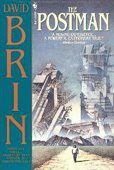 So ... My tournament bracket was trashed after day one. I lost two final four teams the first weekend... but I still have the probable National Champion (along with 75% of everyone else) as North Carolina. After watching the 'Heels demolish Washington State last night, I believe that this team might be able to make the NBA playoffs.
So ... My tournament bracket was trashed after day one. I lost two final four teams the first weekend... but I still have the probable National Champion (along with 75% of everyone else) as North Carolina. After watching the 'Heels demolish Washington State last night, I believe that this team might be able to make the NBA playoffs.Baseball played in the cold has long been part of March for me. After coaching high school baseball for many years, I took the test and have been umpiring for the last 3 years. It's not any warmer, in fact, sometimes it can be a lot colder, especially when the score is 21-1 and the wind chill is 25 degrees.
Watching the weather last night on the news, it turns out that we had 20 days in February with below average temperatures, and are on our way to 20 days in March with below average temperatures, making this the coldest winter in many years in this area. However, to the global warming naysayers, the average temperature this winter is still ABOVE average for this area... so go figure.
Books this month include:
- Legend, Duma Key, and The Postman, which I have already blogged about.
- The Mauritius Command by Patrick O'Brian. Another excellent story in this series about Jack Aubrey and Stephen Maturin. Centered on a minor campaign in the Indian Ocean, Aubrey has risen to the rank of Commander, and seems well on his way to an Admiralty. I look forward to future installments.
- The Concrete Blonde by Michael Connelly. Fast becoming my favorite hard-boiled detective, Harry Bosch is still trying to get past the whole Dollmaker incident... which is certainly dying a very hard death. Excellent stuff.
- Revenge of the Wrought Iron Flamingos by Donna Andrews. What can I say? A bit of fluffy, humourous mystery is always welcome. In the same vein as Joanna Flukes, Janet Evanovich (although far less raunchy that Evanovich), and Elizabeth Peters' Amelia Peabody; Meg Lanslow seems to attract trouble and somehow with the aid of multiple friends and family members, manages to solve the crime/mystery. I'll be reading through this series and post updates.
- finishing up The Mummy Case by Elizabeth Peters, The Solace of Empty Spaces by Gretel Ehrlich, and Childhood's End by Arthur C. Clarke.
Oh yeah. I'm 49 today. Woohoo. Inching ever closer to the big Five-Oh. I guess I'm in pretty good shape for a guy my age.... but man, getting old really does stink. Heh!







